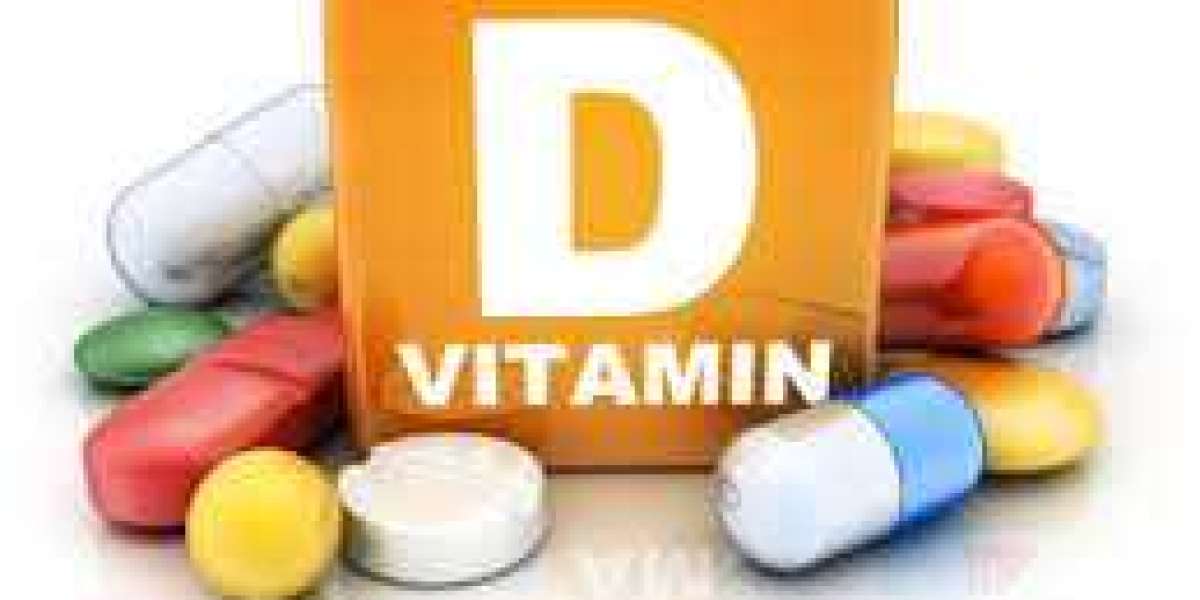Vitamin D3, also known as cholecalciferol, is a vital nutrient that plays a crucial role in maintaining overall health. Often referred to as the "sunshine vitamin," Vitamin D3 is produced in the skin when exposed to sunlight. Despite its natural availability, Vitamin D deficiency is surprisingly common, affecting people of all ages worldwide. This blog explores the importance of Vitamin D3, its health benefits, sources, deficiency symptoms, and supplementation options.
Uvclas D3 is a high-potency vitamin D3 supplement used to prevent and treat vitamin D3 deficiency. It comes in an oral solution of 60000 IU and offers a practical way to regain normal levels of vitamin D in the body.
What Is Vitamin D3?
Vitamin D3 is one of two main forms of Vitamin D, the other being D2 (ergocalciferol). D3 is the more potent and bioavailable form, meaning it is more efficiently absorbed and utilized by the body. It is essential for calcium absorption, bone health, immune function, and many other physiological processes.
While Vitamin D is often classified as a vitamin, it technically functions as a hormone, as the body can produce it in response to sunlight exposure.
Health Benefits of Vitamin D3
1. Supports Bone Health
Vitamin D3 plays a key role in calcium absorption, helping to maintain strong bones and teeth. Without sufficient Vitamin D3, the body cannot absorb calcium properly, increasing the risk of bone disorders such as osteoporosis, rickets in children, and osteomalacia in adults.
2. Boosts Immune Function
Vitamin D3 helps regulate immune responses and has been linked to enhanced protection against respiratory infections, including the common cold and flu. Emerging studies also suggest a potential role in reducing the risk of autoimmune diseases such as multiple sclerosis and rheumatoid arthritis.
3. Improves Mood and Mental Health
Low levels of Vitamin D3 have been associated with mood disorders, including depression and anxiety. Supplementation may help improve mood and cognitive performance, particularly during winter months when sunlight exposure is limited.
4. Supports Cardiovascular Health
Adequate levels of Vitamin D3 may help reduce the risk of hypertension and support overall heart health by influencing inflammation and vascular function.
5. Aids in Muscle Strength and Function
Vitamin D3 is essential for maintaining muscle strength and function, especially in older adults. It may help reduce the risk of falls and improve physical performance.
Common Sources of Vitamin D3
1. Sunlight
The most natural source of Vitamin D3 is sunlight. When UVB rays hit the skin, they trigger the synthesis of Vitamin D3. Spending just 10–30 minutes in the sun several times per week can provide adequate amounts, depending on skin type, location, and time of year.
2. Food Sources
While few foods naturally contain Vitamin D3, some rich sources include:
Fatty fish (salmon, mackerel, sardines)
Egg yolks
Beef liver
Fortified foods (milk, orange juice, cereals)
3. Supplements
For individuals who do not get enough sunlight or dietary Vitamin D3, supplements are a safe and effective option. Vitamin D3 supplements are available in various forms, including softgels, capsules, chewables, and drops.
Signs and Symptoms of Vitamin D Deficiency
Vitamin D deficiency can be subtle or severe. Common symptoms include:
Fatigue and low energy
Bone or back pain
Muscle weakness
Frequent illness or infections
Depression or mood changes
Impaired wound healing
Long-term deficiency may lead to serious bone disorders and increased risk of chronic diseases.
Recommended Daily Intake
The recommended daily intake (RDI) of Vitamin D varies by age and health status. General guidelines are:
Infants (0–12 months): 400 IU
Children and adults (1–70 years): 600–800 IU
Older adults (71+ years): 800–1,000 IU
People with deficiency may require higher doses under medical supervision
Final Thoughts
Vitamin D3 is an essential nutrient that impacts many aspects of health, from strong bones to immune defense and mental well-being. With modern indoor lifestyles and limited sun exposure, maintaining optimal levels can be challenging. Whether through sunlight, food, or supplements, ensuring sufficient Vitamin D3 intake is vital for long-term health and vitality.







